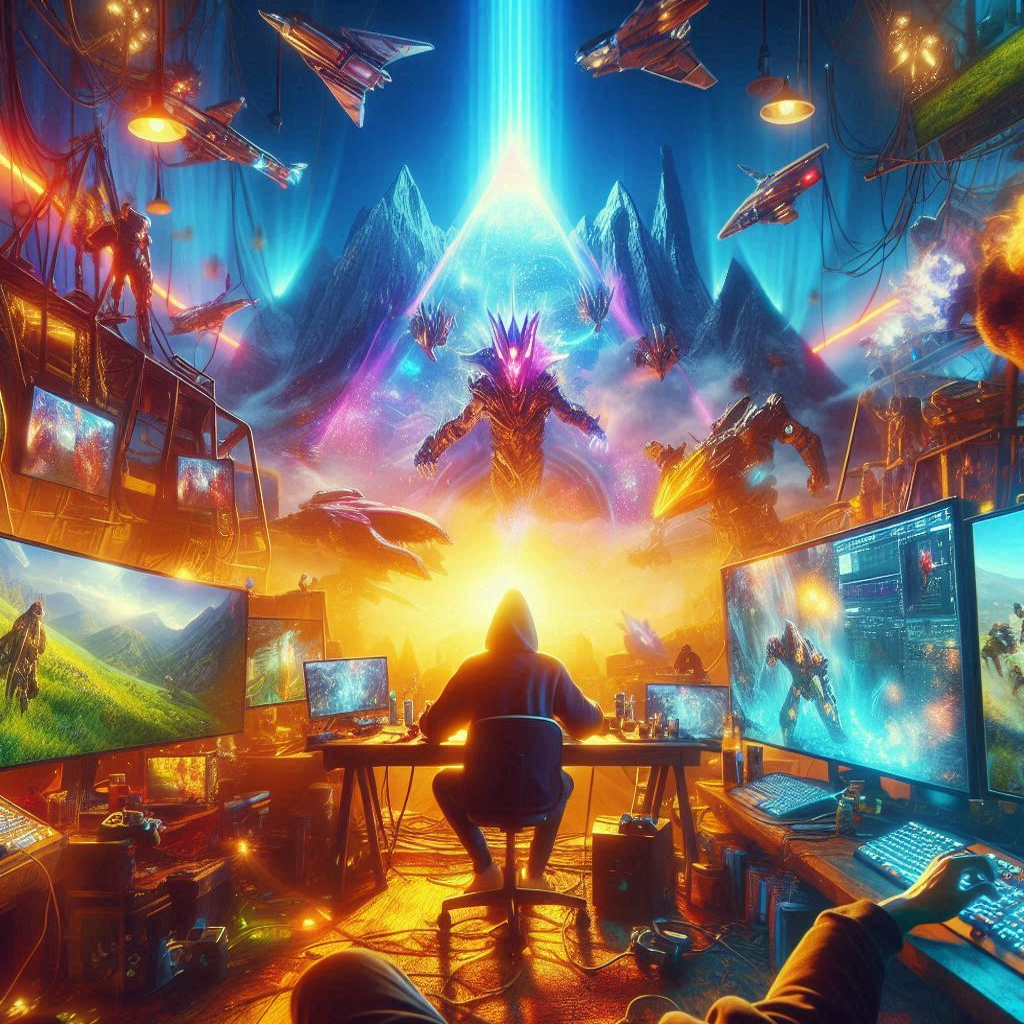Online games have become very popular, and a big part of their fun comes from playing with friends or meeting new people. This is called “social play.” When players interact with each other, it makes the games more exciting and enjoyable. But how does this social play affect game websites?
When players log onto game websites, they often look for games that allow them to chat, team up, or compete with others. This makes these websites more crowded and lively, as everyone wants to join in on the fun. Game websites that encourage social play can attract more players, which means more people visiting their site. This is good for business!
Moreover, social play can help players feel more connected. They might share tips, make friends, and even form teams. This creates a community around the games, making players want to come back again and again. As a result, game websites can become spaces where friendships grow as well as places to play.
In conclusion, social play in online games is important for both the players and the game websites. It makes the games more fun and helps build strong communities. This is why many game developers create social features, ensuring that players have a great time together.
Glossary of Terms:
1. **Social Play**: Interacting with other players in games through chatting, teaming up, or competing.
2. **Game Websites**: Websites where players can access and play games.
3. **Community**: A group of players who connect and support each other while playing games.
The Impact of Social Play in Online Games on Game Websites
Online games have become a massive part of our digital lives. One of the most interesting aspects of these games is the social play they encourage. Social play refers to how players interact and collaborate with each other while gaming. This interaction not only enhances the gaming experience but can also significantly impact game websites and the overall gaming community.
What is Social Play?
Social play involves various forms of interaction between players, including teamwork, communication, and competition. These interactions can occur in many different formats:
- Cooperative Play: Players work together to achieve a common goal.
- Competitive Play: Players compete against each other to win.
- Community Engagement: Players participate in forums, chats, and events to bond over their games.
The Importance of Social Play
Social play has several important effects on both players and game websites:
- Increased Player Retention: Players are more likely to return to a game if they have formed friendships and social connections.
- Enhanced Game Experience: Multiplayer games provide a richer experience when players interact with others.
- Community Building: Strong communities can form around games, leading to a loyal player base and increased engagement.
How Game Websites Benefit from Social Play
Game websites can see significant benefits from the social aspects of online gaming. These benefits include:
- Increased Traffic: As players engage socially, they often visit game websites for updates, chat, and community news.
- Advertising Revenue: More visitors can lead to higher advertisements displayed on game websites, generating increased revenue.
- Enhanced User Experience: Features that promote social interactions, like forums and chat rooms, can make the site more appealing to users.
Real-World Impact of Social Play
A study conducted by the Pew Research Center found that “75% of teenagers play games online with friends or peers, indicating the strong social component of gaming.” This statistic highlights how integral social interactions are to the online gaming experience.
“Online gaming is not just about the game but also about forming connections and building friendships.” – Expert from a gaming survey
The growth of social play has led to innovative features across game websites. Developers now include options for players to share achievements on social media, host online tournaments, and create user-generated content.
Potential Downsides of Social Play
While social play has many benefits, it also presents some challenges:
- Toxic Behavior: Some players may engage in negative behaviors, such as bullying or harassment, which can discourage others from playing.
- Addiction: The social aspect of games can lead to excessive playtime, negatively affecting a player’s real-life responsibilities.
Solutions to Enhance Positive Social Play
Addressing the challenges posed by social play requires thoughtful solutions:
- Implement Moderation Tools: Game websites can introduce features that allow players to report harmful behavior.
- Encourage Positive Interactions: Developers can create rewards for players who exhibit teamwork and respect.
- Educate Players: Providing resources about healthy gaming habits can help players balance their online and real-life responsibilities.
Final Thoughts
The impact of social play in online games is profound. By understanding and addressing the challenges, game websites can harness the power of the community to create a more engaging and positive experience for all players. As the gaming world continues to evolve, the role of social play will only become more crucial, shaping both individual experiences and the online gaming community as a whole.
What is social play in online games?
Social play in online games refers to interactions between players that enhance their gaming experience. This can involve cooperation, competition, or simply communication during gameplay. It often includes features such as chat, forums, and multiplayer modes that facilitate player engagement.
How does social play impact player retention on game websites?
Social play has a significant positive impact on player retention. By creating a strong community, players are more likely to return to the game regularly. The social bonds formed through teamwork and friendships can increase the game’s appeal, encouraging players to stay engaged over longer periods.
What role does social play have in enhancing user experience?
Social play enhances user experience by making games more enjoyable and interactive. Players who share experiences, collaborate on tasks, or compete against each other often find greater satisfaction in their gaming sessions. This interaction adds layers to the game, making it more than just a solitary activity.
Are there any downsides to social play in online games?
While social play is largely beneficial, it can also have downsides. Negative interactions, such as bullying or harassment, can occur, leading to a toxic environment. Additionally, players who prefer solitary play may feel alienated if social features dominate the gaming experience.
How can game developers encourage positive social play?
Game developers can promote positive social play by implementing robust moderation tools, creating safe chat environments, and providing incentives for constructive interactions. Regular updates focused on community building and player feedback can also help maintain a welcoming atmosphere for all players.
What features should game websites include to support social play?
Game websites should incorporate features such as forums, chat rooms, friend lists, and co-op or competitive multiplayer modes. Additionally, they can offer social sharing options and events that encourage players to collaborate or compete, further enhancing the social aspect of the gaming experience.
Does social play influence the overall success of online games?
Yes, social play can significantly influence the success of online games. Games that foster community engagement often see higher user satisfaction, increased word-of-mouth marketing, and greater longevity in the marketplace, ultimately driving their success.







